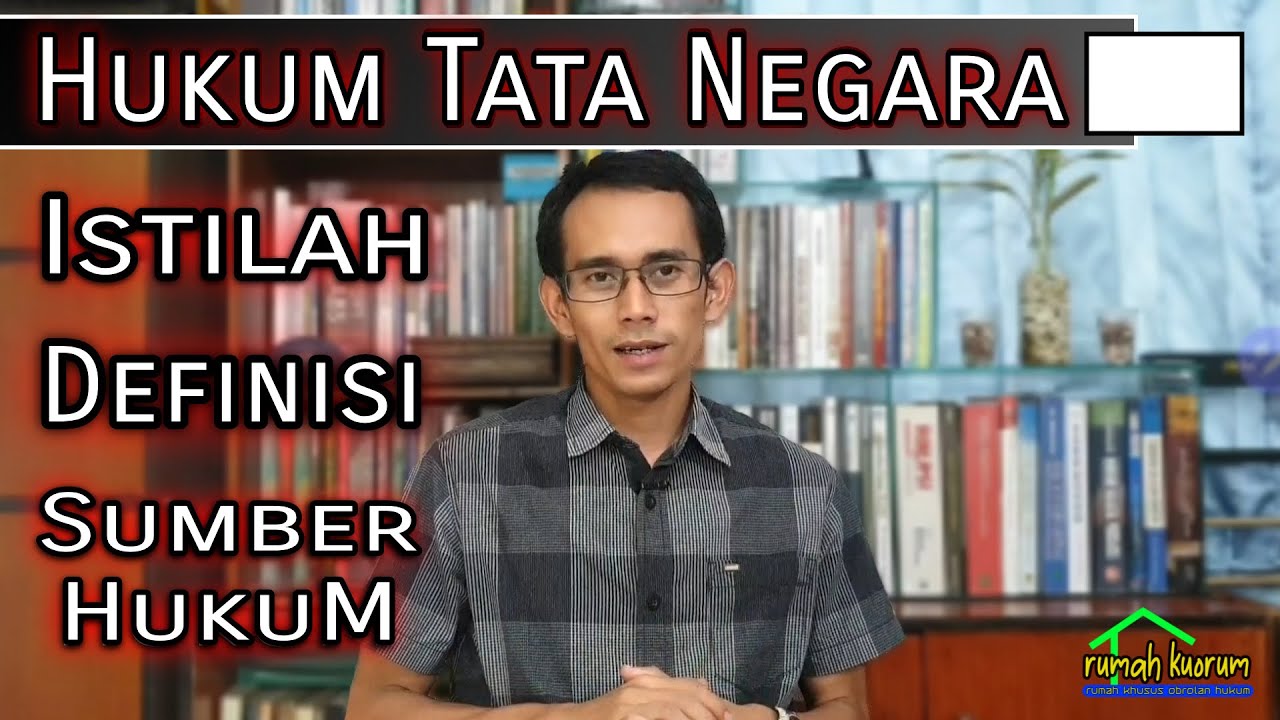Sumber Kewenangan Pemerintahan, Atribusi, Delegasi, dan Mandat
Summary
TLDRThis video explains the sources of governmental authority in Indonesia, as outlined in Law No. 30 of 2014 on government administration. It covers three key sources: Atribusi (authority granted directly by the Constitution or laws), Delegasi (delegation of authority from higher to lower officials, with responsibility resting with the recipient), and Mandat (assignment of authority with accountability remaining with the giver). The video details the responsibilities associated with each source and highlights limits on strategic actions for those receiving Mandat. It serves as an educational guide to understanding Indonesian government authority structures.
Takeaways
- 😀 Atribusi (Attribution) is the granting of authority to government bodies or officials directly by the Constitution (UUD 1945) or laws.
- 😀 Delegasi (Delegation) involves transferring authority from a higher-ranking official to a subordinate, who assumes full responsibility for actions taken.
- 😀 Mandat (Mandate) is a transfer of authority where the responsibility remains with the higher authority, not the recipient.
- 😀 Atribusi can only occur if explicitly regulated by the Constitution or a law, meaning a government body or official can only act within the boundaries of the law.
- 😀 Delegasi is legally required to be based on regulations such as presidential decrees or local government regulations.
- 😀 The recipient of a delegated authority must comply with pre-established rules and cannot delegate the power further without legal grounds.
- 😀 Mandat can be used for routine tasks, but the recipient cannot make strategic decisions such as changing organizational structure or altering budgets.
- 😀 A body or official with Atribusi has full responsibility for the actions taken with the granted power, as defined by the law.
- 😀 In the case of Delegasi, the recipient is responsible and accountable for any decisions made or actions taken under the transferred authority.
- 😀 A Mandat recipient cannot make key organizational or personnel changes and must follow established directives from the higher authority.
- 😀 The responsibility for strategic decisions like staffing, organizational changes, and budget allocations remains with the higher authority in Mandat, not the recipient.
Q & A
What are the three main sources of government authority discussed in the video?
-The three main sources of government authority discussed are attribution, delegation, and mandate.
What does 'attribution' refer to in the context of government authority?
-'Attribution' refers to the granting of authority to government bodies or officials by the Constitution or specific laws, meaning they can only act within the powers explicitly granted by these legal sources.
How does 'delegation' of authority differ from 'attribution'?
-'Delegation' involves the transfer of authority from a higher-ranking official to a lower-ranking one, with full responsibility and accountability transferred to the recipient, while 'attribution' is the direct granting of authority by law or the Constitution.
What are the key conditions that must be met for a delegation of authority to be valid?
-A valid delegation of authority must be regulated by legislation such as government regulations or presidential decrees, must occur within the governmental structure, and cannot skip levels (e.g., delegation from Echelon 1 to Echelon 3 is not allowed).
What is the concept of 'mandate' in government authority?
-'Mandate' refers to the assignment of authority from a higher official to a lower one, where the responsibility and accountability remain with the original grantor of the mandate, not the recipient.
What types of tasks can a person receiving a mandate perform?
-The recipient of a mandate can perform routine tasks as assigned, but cannot make strategic decisions such as changing organizational structure, altering staffing, or reallocating budgets.
What are the three strategic actions that a mandate holder is not allowed to take?
-The three strategic actions a mandate holder cannot take are: 1) changing the organizational structure, 2) altering staffing or employee status, and 3) changing budget allocations.
How does responsibility differ between delegation and mandate?
-In delegation, the recipient assumes full responsibility and accountability for the actions taken. In contrast, under a mandate, responsibility and accountability remain with the person who issued the mandate.
Can a delegate transfer their delegated authority to another official?
-No, a delegate cannot transfer the delegated authority to another official unless specifically authorized by law or regulation, and only within the same level of government.
What is the role of the Constitution and laws in the attribution of government authority?
-The Constitution (particularly the 1945 Constitution of Indonesia) and laws define and limit the powers granted to government bodies and officials, making attribution the formal process of granting authority in accordance with these legal frameworks.
Outlines

This section is available to paid users only. Please upgrade to access this part.
Upgrade NowMindmap

This section is available to paid users only. Please upgrade to access this part.
Upgrade NowKeywords

This section is available to paid users only. Please upgrade to access this part.
Upgrade NowHighlights

This section is available to paid users only. Please upgrade to access this part.
Upgrade NowTranscripts

This section is available to paid users only. Please upgrade to access this part.
Upgrade NowBrowse More Related Video

Wewenang dan Cara Memperolehnya - HUKUM ADMINISTRASI NEGARA

Rontoknya Kewenangan KPK Menuntut Hakim Agung

KULIAH HTN - HUKUM DARURAT NEGARA - PROF NI'MATUL HUDA

Hukum Tata Negara: Istilah, Definisi dan Sumber-Sumber Hukumnya

Bab 2 Aktivitas Belajar 2.3 Tata Urutan Perundang Undangan Di Indonesia

Hubungan Pemerintah Pusat dan Daerah #1-Macam-macam Urusan Pemerintahan (Civic Class)
5.0 / 5 (0 votes)